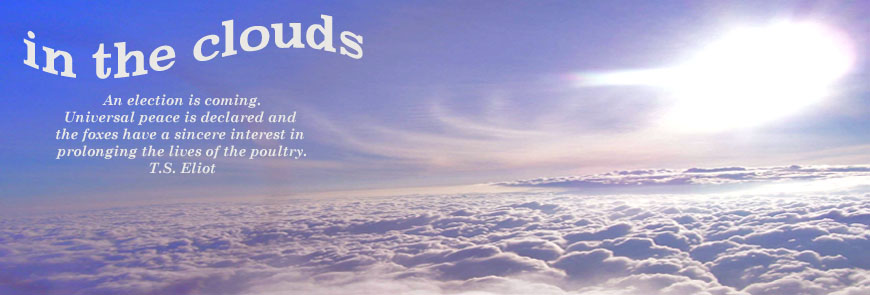One thing I noticed about Nicholas Carr's article that Brent also commented on earlier in the week is the pervasive use of links in almost all online content. From news articles to personal web pages to online books and even to pictures and photo pages; it seems nowadays that everything is a link to something else, reinforcing the notion that nothing is finite and education is a endless process. This reminded me of the topic for this week's discussion: Wikipedia.
I have to admit, I use Wikipedia more often than I should, and occasionally even for academic purposes, although of course I would never cite it (which is a curious topic in itself, as I have been told by numerous professors that Wikipedia is actually an adequate source of quick, easily digested information, but never quite adequate enough to be quoted in an academic arena). But at times it seems as if Google and Wikipedia are working together in relaying all this supposedly "unreliable" information. In most cases when searching on Google, and I must say, that's the first place I go when I sign online, even if I'm not looking for anything, Wikipedia articles are the first item to appear in the search results. So not only is it the easiest to read, but also the easiest to find. Strengthened by its reputation for "usually" presenting impartial and unbiased articles, and for the idea of its freedom of information, I defend Wikipedia's right to be THE alterable encyclopedia of the 21st Century.
But what is even more interesting than the conversation of the integrity of Wikipedia is discussing the phenomenon that has become "Wiki." You may notice as you read through a Wikipedia article that there are dozens of links for practically any random word. If it has more than five syllables, you'll probably find it linked it a Wiktionary article for those who don't know its denotation, and if it's a person, place or time period, you can rest assured it will be linked to a Wikipedia article explaining its significance. Just as Google turned into a verb in the late 90's, so has Wikipedia since its English-language debut in 2001. To "wiki" something is supposedly to "gain a quick understanding of a topic" and can be used in any context, though it is rarely associated with research done outside of wiki- forums. And by forums, I mean the various wiki-sites that are all connected, related, and, yes, LINKED to each other throughout: Wikipedia, WikiAnswers, Wiktionary, WikiQuote, WikiBooks, WikiSource, WikiNews, WikiSpecies, WikiVersity, and, one I just discovered, WikiLeaks. While WikiAnswers and WikiLeaks are not actually endorsed by WikiMedia (the foundation responsible for the other wiki sites), they are becoming increasingly popular and perhaps have more relevance for this particular course.
WikiLeaks has been around since early 2006 but is most well-known for recently exposing private information about vice presidential candidate Sarah Palin, namely, the email hack. WikiLeaks was the site that broke the story practically the same day with screenshots and quotes from her actual emails, though Gawker ran with it and, as a more popular website, took the credit. WikiLeaks also recently posted a leak of a draft of the US Economic Stabilization Act, 2008, quoting an $800 billion bailout, rather than the publicized $700 billion.
So what does the media think of WikiLeaks? Well, from what I gather, it is not a news website but merely a "truth" website, and so news sources can use information provided on WikiLeaks and investigate further. In this sense, it's fantastic. But government agencies tend to disagree. The "mission statement" type explanation of the site's purpose is, "assistance to people of all nations who wish to reveal unethical behavior in their governments and corporations. We aim for maximum political impact. Our interface is identical to Wikipedia and usable by all types of people." Since their launch in 2006, WikiLeaks has been shut down by different governments (it is not limited to the US) at least twice and has been officially blocked by the Chinese government since 2007 (although it claims on the website that, for interested Chinese citizens, there are ways around the block).
Wired.com ran an article last year on the site's success. But not everything WikiLeaks posts is for the good of the country. For example, about two weeks ago, hackers watching Bill O'Reilly's public denouncement of WikiLeaks for publicizing Sarah Palin's emails decided to hack into his website database (BillOReilly.com) and expose the personal information of dozens of his subscribers just to prove a point.
Wiki sites and the freedom of sharing and altering information has become a hallmark of our generation. The Internet-boomers love the option of playing an active role in media communications and shaping the language of our time (hence the exponential popularity of blogs since their introduction). But of course, wiki sites come with potential hazards, the possibility of fraud and false information, and as a result, eventually, somewhere, there must be a censor. But regardless, the notion of responsibility-free reporting, and consequence-free political leaking is very new to the Internet in such an organized manner. What kind of difference could resources like this have made in past political scandals? What could it mean for the future of politics?
And...where will this go? What else can we wikify that could revolutionize our world by giving everyone a voice? WikiWhat? WikiWhy?
ps... this was long, i'm sorry if it hurt.
13 years ago


1 comment:
goygoygoioi
lkljlkролдрод момпромпорм пл
ромрммп
Post a Comment